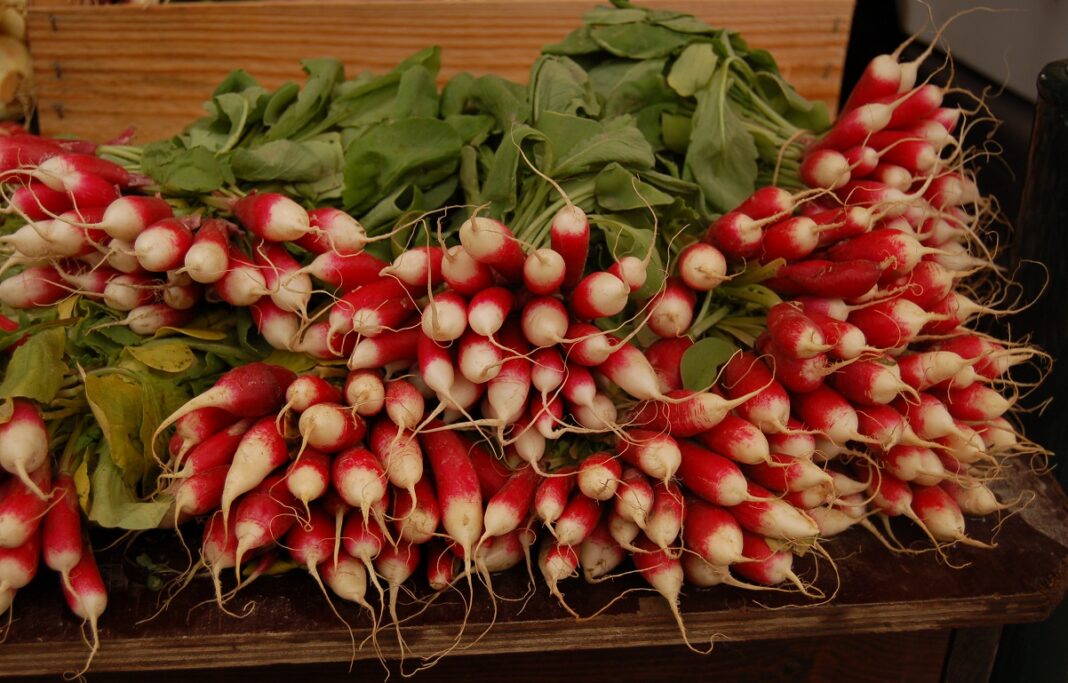by Melinda Myers
Prepare some space in the garden or a container for a fall harvest of radishes. They grow and taste best during cooler weather, and some are ready to harvest in just 25 days.
There is a variety of radishes suited to everyone’s taste. Most of us have tried the peppery-flavored, round, and red ones, but you’ll also find mild to pungent-flavored radishes in various colors and shapes.
If you or your family don’t like the pungent flavor, you can help tame the intensity with proper selection, care, and preparation.
The pungent flavor in radishes is due to isothiocyanates. The more of these healthful sulfur-containing compounds in a radish, the hotter the flavor.
Some varieties, like French breakfast and white icicle, have a milder flavor while the black radish is almost as pungent as horseradish. They typically have black skin with a white center.
Radishes grown in cooler temperatures with consistently moist soil tend to be less pungent. Provide sufficient water throughout the growing season and harvest when mature. Radishes left in the garden for a few extra weeks develop more isothiocyanates, making them more pungent.
Salad radishes are quick maturing and easy to grow. Slice into the slightly sweet watermelon radish to find the unique color that inspired its name. French breakfast radish is red, elongated, and ready to harvest in 25 to 30 days. Or change things up with Helios, a small, plump, yellow radish with a sweet flavor.
Plant Asian radishes midsummer into early fall. These typically have a long white cylindrical root and are an important ingredient in Asian cuisine. Their long roots and adaptability to a wide range of soil make them a useful winter-killed cover crop. The large taproots break through the top eight or more inches of soil, die in winter, and quickly decompose in spring to improve the soil.
Increase success with proper soil preparation. Improve heavy clay soils by working several inches of organic matter into the top 8 to 12 inches of soil. Then create a slightly raised planting bed with the existing soil and plant. Or plant in a container filled with a quality, well-drained potting mix. Creating a proper soil foundation will increase the plant’s ability to develop full-sized roots.
Thin out young plantings leaving enough room between the remaining plants for the roots to grow to full size. Use the seedlings removed to spice up salads and soups or top a sandwich.
Cooking and roasting can also help tame the pungent flavor of radishes. For a less intense flavor, try peeling spicy varieties before serving them fresh.
With so many options, you will be looking for more ways to grow and use a variety of radishes.
Melinda Myers has written over 20 gardening books, including Midwest Gardener’s Handbook, Revised Edition and Small Space Gardening. She hosts The Great Courses “How to Grow Anything” instant video and DVD series and the nationally syndicated Melinda’s Garden Moment radio program. Myers is a columnist and contributing editor for Birds & Blooms magazine. Myers’ website is www.MelindaMyers.com.






